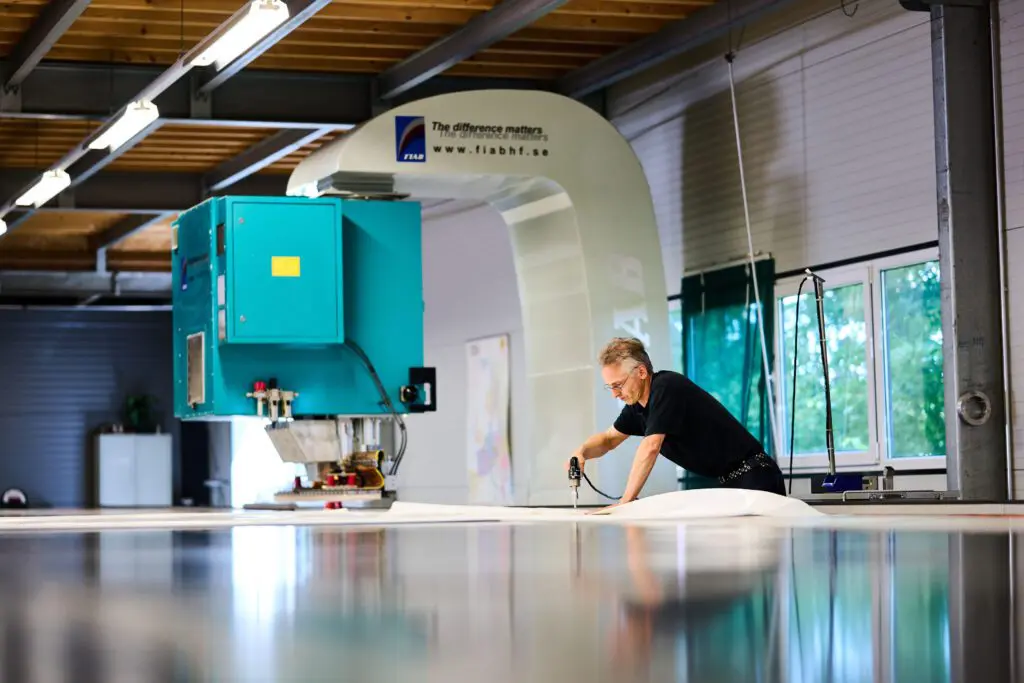As Spantech celebrates its 25th anniversary, we stand at a crossroads of history and innovation, where the enduring legacies of architectural pioneers blend seamlessly with our vision for the future of construction. This milestone invites us to delve deeper into the pioneering techniques of Gustave Eiffel, Jean Prouvé, and Mies van der Rohe, whose groundbreaking work has laid the foundation for our innovative approach to Construction 2.0.
Prefabrication, now a key method in Construction 2.0 for its efficiency and precision, saw one of its earliest and most notable applications in the work of Gustave Eiffel, especially in building the Eiffel Tower for the 1889 World’s Fair. Eiffel’s innovative strategy involved the off-site manufacturing of prefabricated iron parts, which were subsequently transported to and swiftly assembled at the construction site. This approach significantly shortened the construction timeline while maintaining high standards of quality and structural integrity.

Through the Eiffel Tower project, Eiffel showcased the vast capabilities of prefabrication in tackling engineering challenges and achieving architectural finesse. By segmenting the construction into preassembled sections, Eiffel enhanced both the efficiency and precision of the process. The rapid completion of the Eiffel Tower, achieved in just two years, underscores Eiffel’s meticulous planning and the impactful role of prefabrication in shaping future construction practices.
Eiffel’s pioneering use of prefabrication is echoed in our commitment to off-site production, which allows for precise quality control, reduction in construction time, and minimization of environmental impact. By embracing these principles, Spantech has positioned itself at the forefront of the Construction 2.0 industry, leveraging modern technology and materials to enhance the speed and sustainability of building projects.

Jean Prouvé’s contributions to architecture and design were characterized by his innovative use of materials and his development of demountable structures. Prouvé’s demountable houses, designed in the aftermath of World War II to address urgent housing shortages, were groundbreaking in their use of lightweight, prefabricated components that could be easily assembled, disassembled, and transported. His forward-thinking approach to housing was not only practical but also aesthetically pleasing, combining functionality with a unique industrial beauty.

Prouvé’s philosophy of adaptability and efficiency in design has profoundly influenced Spantech’s approach to modular construction. By prioritizing flexible design and the use of recycled and lightweight materials, such as aluminum, Spantech continues to explore innovative construction solutions that are both environmentally responsible and capable of meeting the dynamic needs of modern societies.

Mies van der Rohe’s architectural philosophy, characterized by the maxim “less is more,” has had a lasting impact on contemporary architecture and design. Mies’s emphasis on structural clarity and the expressive use of modern materials such as steel and glass redefined architectural aesthetics and functionality. His designs, marked by open spaces and seamless integration of indoor and outdoor environments, championed the idea that buildings should reflect their purpose and environment through honest material expression and structural integrity.

Spantech draws inspiration from Mies’s minimalist approach and his innovative use of materials, striving to create structures that embody simplicity, elegance, and transparency. This alignment with Mies’s principles is evident in Spantech’s pursuit of sustainable and efficient construction methods that emphasize the beauty and functionality of modern materials.

As Spantech celebrates 25 years of pushing the boundaries of construction innovation, it is clear that our vision is deeply rooted in the lessons learned from these architectural pioneers. By integrating the principles of speed, modularity, adaptability, and material expression into our Construction 2.0 philosophy, we are not only paying homage to the past but also paving the way for a future where construction is synonymous with sustainability, efficiency, and architectural excellence.
Looking ahead, Spantech remains committed to exploring new frontiers in construction technology and design, inspired by the pioneering spirit of Eiffel, Prouvé, and Mies van der Rohe. As we continue to build on the foundation they have laid, we are reminded that innovation is not just about creating new structures but about reimagining the possibilities of what those structures can be. Here’s to the next 25 years of innovation, inspiration, and building a better tomorrow with Spantech.

In the fast-paced world of event marketing, the ability to adapt and execute brand activation events quickly and efficiently is not just an advantage—it’s essential. Traditional event setups often fall short in meeting the urgent demands of the industry, plagued by logistical challenges that can derail even the most meticulously planned events. The Challenges of […]

In today’s world, where environmental consciousness and sustainable practices are at the forefront, industries are embracing innovative approaches to minimize their ecological impact. The construction sector, known for its significant environmental footprint, is undergoing a transformative shift towards sustainability. Comprehensive assessments, such as Life Cycle Assessments (LCAs), play a vital role in measuring and validating […]

“The next normal in construction.” That’s how McKinsey & Company referred to modular construction in their groundbreaking 2020 report. Not only does modular construction offer the potential for projects to be completed 50% faster and 20% cheaper than traditional methods, but industry experts predict that by 2030, it could capture $130 billion of the market, […]